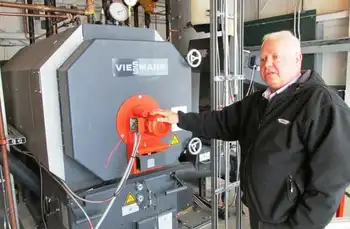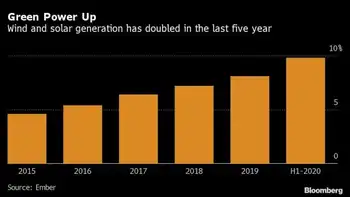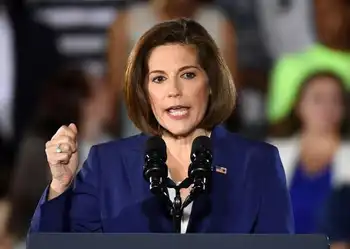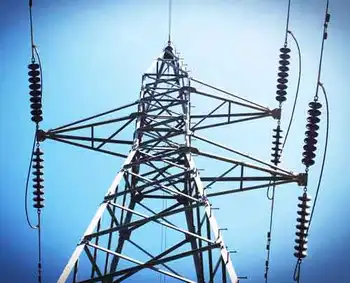More firms give green light to solar
The business in Harleysville, about 20 miles northwest of Philadelphia, has pledged to be more environmentally friendly this year. And it's taking that pledge seriously by installing solar panels on its roof to provide up to half of the business's electricity.
"There was a lot of stuff in the news" about going green, said Rann Pharmacy owner Greg Segner. "It was time to do our part."
Segner said it cost about $177,000 to install the system on the pharmacy roof. With incentives from the federal and state governments, along with energy savings, the panels will pay for themselves in about five years, Segner said.
The savings and incentives are fueling a demand for solar panel projects, particularly in Pennsylvania, which began offering rebates under the Pennsylvania Sunshine Solar Program — so-called "Sunshine Grants" — in May. In New Jersey, financial incentives have been available since 1999, making the state second behind California in solar energy projects, industry experts said.
"Essentially, it takes about 20 years to pay off a system without incentives," said Doreen Holley, owner of Zettajoules LLC in Bordentown, N.J., on the Pennsylvania border just south of Trenton, 30 miles northeast of Philadelphia. The company specializes in large solar energy projects for businesses. "As states adopt incentive programs, it makes economic sense for a business or a homeowner to adopt renewable energy in the form of solar."
The federal government offers a tax rebate equal to 30 percent of the solar energy project's cost.
In Pennsylvania and New Jersey, additional rebates are available, depending on how many kilowatt hours of power the systems generate.
But an even bigger incentive for businesses are solar energy credits, which can generate thousands of dollars a year in additional income, said Dr. Jerry Robbins.
He's chief information officer for Aztec Solar Power, a company in King of Prussia, about 10 miles northwest of Philadelphia, that installed Rann Pharmacy's solar panels.
Electrical utilities are required to generate a certain percentage of renewable energy and can be fined if they miss that target. But in lieu of generating the electricity themselves, the utilities can purchase credits from businesses and residents who have solar, wind or other alternative forms of energy systems.
In Pennsylvania, credits are going for about $300. In New Jersey, the price is double that, according to the Flett Exchange, which tracks solar credit prices.
Then, of course, there's the electricity savings, an increasingly important factor as rate caps expire over the next several years.
Once the system is paid off, "that amount of electricity, regardless of how much per kilowatt hour electricity is selling for, you're not paying for that amount," Robbins said.
Centocor Ortho Biotech Inc., a division of Johnson & Johnson based about 15 miles north of Philadelphia in Horsham, is installing a solar panel system that would generate 250,000 kilowatt hours a year, enough to cover about 12 percent of the company's electricity needs, said company spokesman Brian Kenney.
The $1.5 million project is offset by a $670,000 state grant; Centocor isn't eligible for the Sunshine Grant program because that's open only to small businesses.
In New Jersey, Zettajoules recently worked with Kohl's department store to install solar panels at its store in Cherry Hill, N.J., about 10 miles east of Philadelphia. Holley said she's working with state officials to design training programs for displaced workers from the construction industry by teaching them how to install solar panels.
In Pennsylvania, Solardelphia of Pipersville installed solar panels at Delaware Valley College's farmers market in nearby Doylestown, about 30 miles north of Philadelphia. The firm is also working with a factory in Coopersburg, just southeast of Allentown, about 40 miles northwest of Philadelphia.
"The incentives drive them to our door," said Solardelphia manager Glenn Burd. "And then we can educate them about their savings."
Segner proudly takes visitors to the roof of Rann Pharmacy to see the solar panels, and to the basement to see the equipment that tracks how much energy is being generated and how much carbon is being saved.
"I'm positioned now, even if rates do go up, at least it'll cut down my cost," he said. "And it's an unlimited resource."
Related News

New energy projects seek to lower electricity costs in Southeast Alaska
ANCHORAGE - New projects are under development throughout the region to help reduce energy costs for Southeast Alaska residents. A panel presented some of those during last week’s Southeast Conference annual fall meeting in Ketchikan.
Jodi Mitchell is with Inside Passage Electric Cooperative, which is working on the Gunnuk Creek hydroelectric project for Kake. IPEC is a non-profit, she said, with the goal of reducing electric rates for its members.
The Gunnuk Creek project will be built at an existing dam.
“The benefits for the project will be, of course, renewable energy for Kake. And we estimate it will save about 6.2 million…




